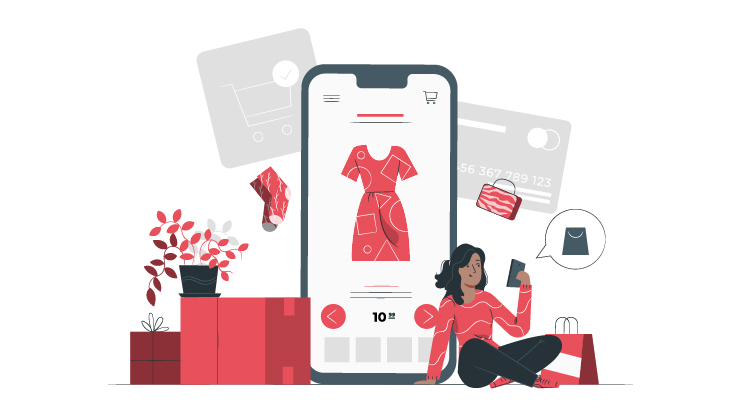The retail industry has seen substantial change in the past couple of years. Today, brands don’t have to rely on conventional distribution channels for their products or services to reach consumers. With the middlemen out of the picture, brands are now promoting themselves and selling their products and services directly to their consumers. These direct-to-consumer (D2C) brands have successfully identified a market gap and created their own playing field, even without the traditional brick-and-mortar presence. Their marketing and selling techniques are unlike any retail brand of the yesteryears. Utilising the convenience of easy internet access that modern consumers have, their affinity towards social media, and their preference for mobile shopping, D2C brands are effectively communicating with them in a personal, relatable way.
With the help of influencers, D2C brands are successfully promoting themselves and selling their products and services directly to the consumers, even without the traditional brick-and-mortar presence. Click To Tweet
The rise of D2C brands on social media
The booming D2C industry in India is projected to reach a whopping value of $100 billion by 2025. And much of the success of D2C brands has to be credited to social media platforms and the various shopping tools they provide. But that’s not all; they are attracting the attention of established eCommerce brands as well. Take, for instance, the recently launched Flipkart Boost programme. It is all set to enable growth opportunities for D2C brands through the platform. To do so, the eCommerce giant will start by identifying a hundred D2C brands across various segments this year and invest in them. That’s a serious and welcome encouragement for homegrown brands and smaller businesses.
D2C brands and Influencer Marketing
With the ingress of D2C brands, there’s also been a significant shift in the purchase behaviour of consumers. While accessibility and affordability continue to be amongst the differentiating factors that drive decisions, modern buyers also look for merchandise that is unique and brands that make a difference. They are informed, aware, and conscious about the footprint their purchases leave behind and prefer brands that are ethical, honest, and transparent about their products and services. D2C brands come with a better understanding of this evolving consumer behaviour, and they’re choosing avenues that allow them to cater to this change.
In India, the D2C industry is projected to reach a whopping value of $100 billion by 2025. And much of the success of D2C brands has to be credited to social media platforms and influencer marketing techniques. Click To Tweet
By understanding the change in consumerism, home-grown D2C brands are disrupting the traditional retail models, and influencer marketing is contributing to their growth. Take these cases for example –
Case 1: Fashion and Lifestyle
A flourishing segment of the D2C industry in India, fashion and lifestyle brands are adopting influencer marketing techniques to gain the trust of potential customers. These brands have paved their way to the audiences by basing their influencer campaigns on personalised, meaningful communication, strong storytelling, relatable content and authentic recommendations.
- Bewakoof: One of the earliest entrants of the Indian D2C space, the brand has an organic following of 1.6 million on Instagram and 4.5 million on Facebook. No stranger to influencer marketing, the brand has worked with more than 250 influencers across different social media platforms. However, instead of focusing on promoting products, their campaigns focus on brand-building.
- Neeman shoes – Launched last year, this young footwear company’s first influencer campaign was in collaboration with comedian Vir Das, who is known for his evolved sense of humour and honest content. The brand aimed to spread awareness about its products and eco-credibility. Over time the brand has partnered with a number of influencers and on a regular basis.
- BoAt: Consistent with Influencer Marketing, the electronic brand is giving the major players in the segment a tough competition. Positioning itself as a lifestyle accessory brand right from its inception, boAt has the flair for doing things differently, including its Influencer Marketing strategies. In the past years, the brand has launched a variety of campaigns with celebrity influencers to appeal to the audience and enhance the brand’s visibility.
- Bunaai – An influencer herself, founder Pari Choudhary leveraged her Instagram followership to launch the brand in 2016 and hasn’t looked back ever since. Aided by the platform’s shopping tools, Bunaai has grown remarkably and is one the finest examples of the contribution of influencer marketing in building a brand from scratch.
Case 2: Beauty and Personal Care
Gone are the days when celebrities endorsed beauty products and people only trusted big names in the market. D2C brands are doing much more than projecting picture-perfect beauty as a selling factor. Instead, they are prioritising genuine reviews by influencers, value-added narratives, and integrated messaging.
- SUGAR Cosmetics – At a time when short-format video content was not as popular, the cosmetic brand leveraged it for their influencer marketing strategy. Collaborating with influencers to educate the audience on makeup without stereotyping beauty standards, the cosmetic brand’s campaign reached about 43 Lakh people across social media channels and still enjoys about two million monthly visits.
- Pee Safe – Encouraging conversations about menstrual hygiene, the brand has worked with a multitude of organic influencers to create brand awareness. The brand has been fearless with its marketing strategy, running bold campaigns like #OwnTheRed, challenging taboos that not many brands were openly talking about. Roping in male and female influencers, it plans to keep the strategy going by geo-targeting its campaigns.
- Mcaffeine – Keeping things simple, but consistent, is the way this caffeine-based personal care brand approaches influencer marketing. Their collaborations range from celebrities to micro-influencers, depending upon the campaign’s objectives. Apart from quality content, relatable narrative, and realistic visuals, the brand also focuses on social listening with the launch of every campaign and strategizes the upcoming ones based on performance analytics.
- Mamaearth – This toxin-free skincare brand has become a household name in just four years and is only growing further. Leaning on always-on influencer campaigns, the brand has created a top-of-the-mind recall value. From mom-bloggers to health and fitness influencers, from Youtube vloggers to established Instagram influencers, the brand has quite mastered influencer collaborations, each campaign yielding extraordinary outcomes.
D2C brands are aware of the evolving online purchase behaviour of customers and influencers know their audiences well. Combined, their communication reaches far and wide in the most relatable way. Click To Tweet
Case 3: Food and Beverages
Although the food and beverages segment is one of the toughest for any retail brand to enter, D2C brands have made a mark for themselves with unique strategies, with social media and influencer marketing techniques. Instead of competing with giants in the market, D2C brands have reversed the cycle, and established companies are trying to enter the D2C space.
- Country Delight – Starting off as a milk delivery company, the brand has been actively leveraging influencer marketing by collaborating with various influencers across categories – from celebrities to momfluencers to granfluencers. The brand also launched an integrated campaign by releasing a digital film and followed it by mobilising social media influencers as a part of the campaign to widen their reach.
- Licious – The meat and seafood brand was the first D2C entrant in the farm-to-fork business model. Although it has launched only a few one-off influencer campaigns and contests so far, the brand expanded its reach by editing the campaign videos to regional languages. As a result, over 50% of new consumers discovered the brand.
D2C brands are gaining the consumer’s trust and loyalty through long-term influencer marketing strategies. Their communication resonates with the audience and has a two-way communication channel open. Click To Tweet
What works in favour of D2C brands is that they sprang from a customer-first approach. These new-gen businesses are focusing on brand building based on consumers’ trust and loyalty through long-term influencer marketing strategies. For them, it’s not just about selling or the convenience of placing their products in the marketplace. It’s more important to resonate with the audience, open a two-way communication channel, and pay close attention to what customers say. Influencers marketing techniques have equipped them with the resources required to do so. And it can be a handy marketing tool for brands that are just entering the D2C space.
Even with limited resources, young D2C brands can collaborate with micro-influencers to penetrate the market and reach a larger audience base. Putting customers at the heart of the communication strategy, personalised messaging and tailored recommendations through influencers can help new D2C brands to establish themselves as brands with purpose, rather than sale-oriented companies.













